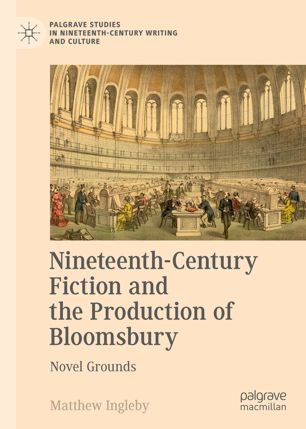

Most ebook files are in PDF format, so you can easily read them using various software such as Foxit Reader or directly on the Google Chrome browser.
Some ebook files are released by publishers in other formats such as .awz, .mobi, .epub, .fb2, etc. You may need to install specific software to read these formats on mobile/PC, such as Calibre.
Please read the tutorial at this link: https://ebookbell.com/faq
We offer FREE conversion to the popular formats you request; however, this may take some time. Therefore, right after payment, please email us, and we will try to provide the service as quickly as possible.
For some exceptional file formats or broken links (if any), please refrain from opening any disputes. Instead, email us first, and we will try to assist within a maximum of 6 hours.
EbookBell Team

4.7
106 reviewsThis study explores the role of fiction in the social production of the West Central district of London in the nineteenth century. It tells a new history of the novel from a local geographical perspective, tracing developments in the form as it engaged with Bloomsbury in the period it emerged as the city’s dominant literary zone. A neighbourhood that was subject simultaneously to socio-economic decline and cultural ascent, fiction set in Bloomsbury is shown to have reconceived the area’s marginality as potential autonomy. Drawing on sociological theory, this book critically historicizes Bloomsbury’s trajectory to show that its association with the intellectual “fraction” known as the ‘Bloomsbury Group’ at the beginning of the twentieth century was symptomatic rather than exceptional. From the 1820s onwards, writers positioned themselves socially within the metropolitan geography they projected through their fiction. As Bloomsbury became increasingly identified with the cultural capital of writers rather than the economic capital of established wealth, writers subtly affiliated themselves with the area, and the figure of the writer and Bloomsbury became symbolically conflated.